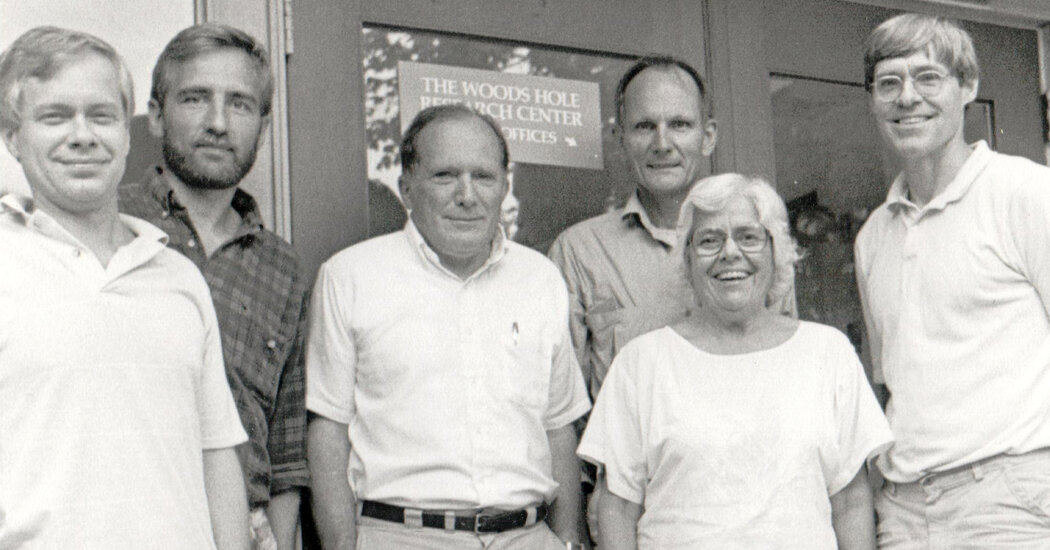The founder of the renowned Woods Hole Research Center in Massachusetts, he was not afraid to leverage credible scientific findings to influence public attitudes and government strategy.
George M. Woodwell, the founder of the Woods Hole Research Center in Massachusetts and a renowned ecologist whose keen research and masterful understanding of policy shaped how the United States controlled toxic substances, and how the world confronted climate change, died on Tuesday at his home in Woods Hole, Mass. He was 95.
The research center, which Dr. Woodwell started in 1985 to study global climate change, and which was later renamed for him, announced his death in a statement.
During his long career, Dr. Woodwell consistently shined a light on how the byproducts of new technologies devised to increase efficiency in the agriculture, forestry and energy industries seriously endangered natural systems. His careful research provided early evidence of what he called “biotic impoverishment” — the steady weakening of plants, animals and ecosystems chronically exposed to synthetic pollutants.
Dr. Woodwell published more than 300 scientific papers, many of them in Science, Scientific American and other leading journals, and his career included teaching and research positions at the University of Maine, Brookhaven National Laboratory, Yale University and the Marine Biological Laboratory.
But he was an activist at heart who was not afraid to leverage credible scientific findings to influence public attitudes and policy. He was at the center of the national campaign to end atmospheric testing of nuclear weapons in the 1960s and the effort to ban DDT and other dangerous farm chemicals in the 1970s.
Dr. Woodwell also was among the first scientists to recognize the threats to nature and human life associated with rising levels of carbon dioxide in the earth’s atmosphere. In 1972, he convened a conference, Carbon and the Biosphere, at Brookhaven National Laboratory on Long Island that was attended by 50 internationally recognized climatologists, oceanographers and biologists. It was the first international gathering ever held on what is now called climate change.
